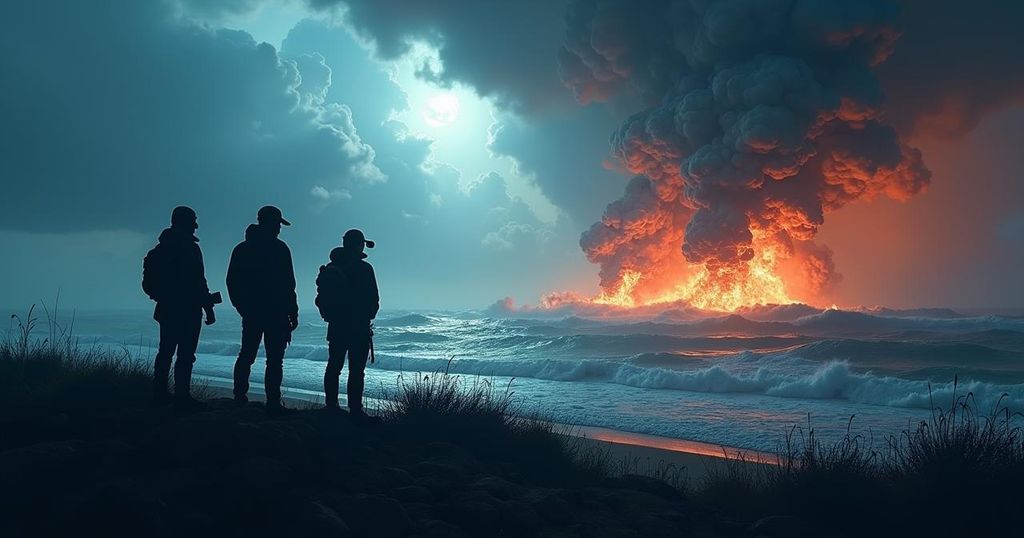The Unrelenting Impact of Climate Change on Natural Disasters: Insights from Meteorologists

Meteorologists are increasingly witnessing the severe impact of climate change on natural disasters, with Hurricane Milton exemplifying the rapid intensification of storms. Notable figures like John Morales have pointed out the necessity for public awareness regarding the catastrophic effects of climate change, urging communities to heed warnings without skepticism. The current weather patterns indicate a global crisis that must be taken seriously.
Recent observations by meteorologists indicate a direct correlation between climate change and the increase in frequency and intensity of natural disasters. This year has seen particularly severe weather patterns that are unprecedented in severity, highlighting the urgent need for public awareness and preparation. As Hurricane Milton approaches Florida with alarming strength, mandatory evacuation orders have been enacted. The rapid escalation of this storm illustrates the challenges that communities face as climate change exacerbates typical weather phenomena. A notable perspective on this subject comes from John Morales, a veteran meteorologist and Hurricane Specialist for the National Weather Service in South Florida. Mr. Morales has observed firsthand the impact of climate change on weather patterns. He has predicted devastating storms, notably advising the public about Hurricane Helene’s catastrophic potential prior to its development. Unfortunately, such warnings are sometimes met with dismissiveness. During a recent broadcast on October 7th, Mr. Morales conveyed profound emotion upon realizing that Hurricane Milton had intensively developed into a Category 5 hurricane within a mere few hours. “It’s just an incredible, incredible, incredible hurricane. It has dropped 50 millibars in 10 hours. I apologize. This is just horrific,” he stated, showcasing the real human experience and concern for life and property at stake. In 2024, many regions globally have experienced some of the gravest natural disasters recorded to date. Flash floods and extreme storms have devastated areas in the United States, Europe, and Asia. Catastrophic effects are apparent, with communities reeling from the rapid succession of hurricanes fueled by exceptionally warm ocean waters. Additionally, the unprecedented heatwaves across Europe have devastated agriculture, leading to severe consequences for farmers and livestock. These instances underscore the catastrophic changes already at play due to climate variability. Adequate comprehension of the substantial effects of climate change is critical. When a meteorologist of the caliber of Mr. Morales anticipates a storm of severe magnitude, it is imperative that the public heed such warnings without skepticism or judgment.
Climate change continues to pose significant challenges to our environment, manifesting in increasingly severe weather patterns and natural disasters. Recent years have seen a marked increase in catastrophic weather events, prompting scientists and meteorologists to reassess our understanding of these phenomena and their relation to climate change. The effects are not only seen in storms but also in droughts, wildfires, and severe temperature changes across the globe. Meteorologists play a crucial role in predicting and analyzing these occurrences, which can have life-altering impacts on communities.
The observations of meteorologists, particularly in the realm of hurricane forecasting, spotlight the undeniable effects of climate change on natural disasters. As demonstrated by John Morales’ emotional response to the rapid intensification of Hurricane Milton, the stakes could not be higher. It is crucial for communities to trust scientific warnings and to understand that the escalating severity of storms is a symptom of a larger climate crisis. This awareness is vital for preparedness, resilience, and ultimately safeguarding lives and property.
Original Source: www.thetravel.com






